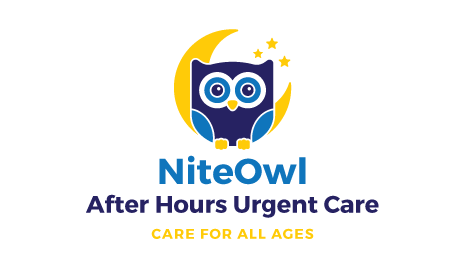 Antibiotics are not the cure all for everything that aches. Antibiotics are used to treat infections and bacteria. They will not help in the treatment of viruses. Taking antibiotics when they are not suited for your illness can cause potential harm to your children.
Antibiotics are not the cure all for everything that aches. Antibiotics are used to treat infections and bacteria. They will not help in the treatment of viruses. Taking antibiotics when they are not suited for your illness can cause potential harm to your children.
Before prescribing any medication, it is important that your child’s pediatrician understands their symptoms. Here are a few of the most frequent questions we are asked about antibiotics:
Q: Why will the pediatrician not prescribe antibiotics when my child has a cold? A: Antibiotics are prescribed for the treatment of bacteria. A doctor will not prescribe these medications since a cold is caused by a virus, not bacteria. Most cold symptoms like a runny nose, cough and congestion can be treated with over the counter medication and will typically get better on their own with time.
Q: Why wait to start an antibiotic if colds can turn into bacterial infections? A: Bacterial infections do not typically follow viral infections. When you use an antibiotic to treat viral infections it can lead to an infection of resistant bacteria and also cause diarrhea and other side effects.
Q: Is green or yellow mucus a sign of a bacterial infection? A: With a cold it is normal for mucus thicken and turn to yellow or green colors. These symptoms typically last about 10 days.
Q: Can ear infections be treated with antibiotics? A: Ear infections can be treated with antibiotics, but that isn’t always the most appropriate course of action. Almost half of all ear infections go away without any antibiotic medication. Over the counter pain medication should be your initial choice since pain and discomfort are the first signs of an ear infection. Acetaminophen and ibuprofen are also effective in reducing fevers. Antibiotics can treat the infection, but should not be your first means of comfort.
Q: Can antibiotics be used to treat sore throats? A: Research has found that more than 80% of sore throats are actually caused by a virus. Sore throats, runny noses, and deep coughs are signs of a virus. Antibiotics can be used to treat group A streptococci, a bacterial infection called strep throat. If a strep test comes back positive, antibiotics will be prescribed. Strep does not usually affect children younger than 3 and is typically found in school aged children.
Q: Do antibiotics cause side effects? A: With any drugs, there is always a risk of side effects. 1 out of every 10 children taking antibiotics will experience side effects including rashes, allergic reactions, nausea, diarrhea and stomach pain.
Q: How long does it take an antibiotic to work? A: Within 48 to 72 hours after starting the antibiotic, your bacterial infection will begin improving. When taking an antibiotic, it is important to finish the entire prescription. If you stop taking the medication the infection may not be treated completely and the symptoms could return.
Q: Can misusing antibiotics cause problems? A: Misusing antibiotics can lead to resistant bacteria that can no longer be treated with an antibiotic. It is important that your child finish the prescription and that they are taking one suited specifically to their needs.
Q: What are antiviral medicines? A: Antiviral medicines are used to treat viral infections such as the flu. These medications are designed for children that run a higher risk of becoming severely ill if they get the flu. Antiviral medications are not recommended for coughs and colds.
Antibiotics are not the magic drug every time your child gets sick. These medications only work in treating bacterial infections, not colds and the flu. When your child is taking antibiotics it is important that they finish the entire prescription.
When your child falls victim to the illnesses of winter, NiteOwl Pediatrics is open nights and weekends to provide relief.
